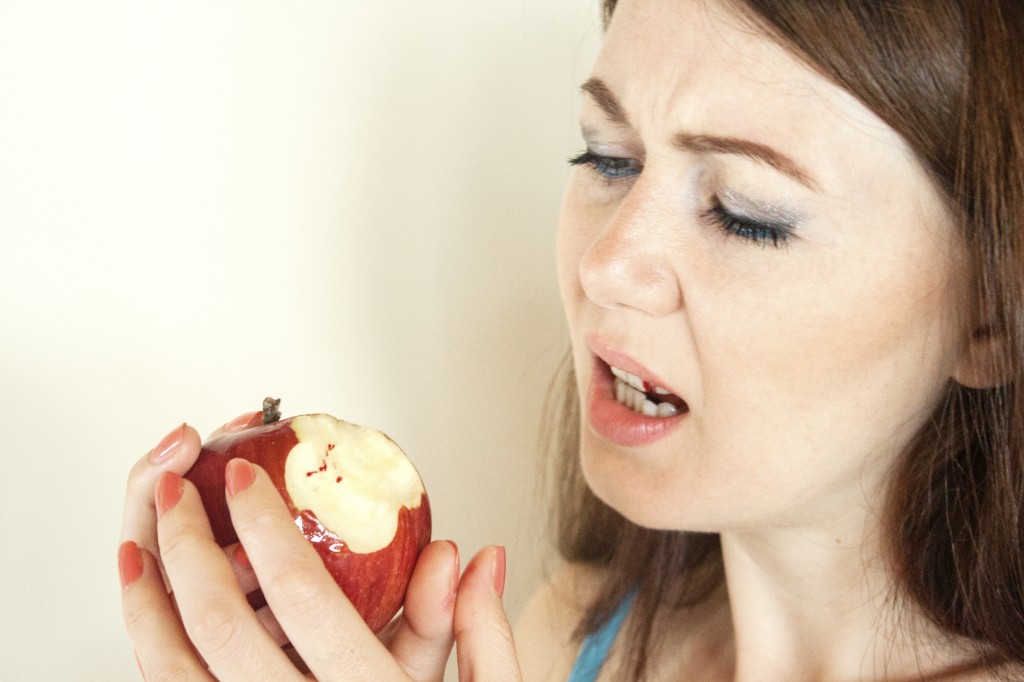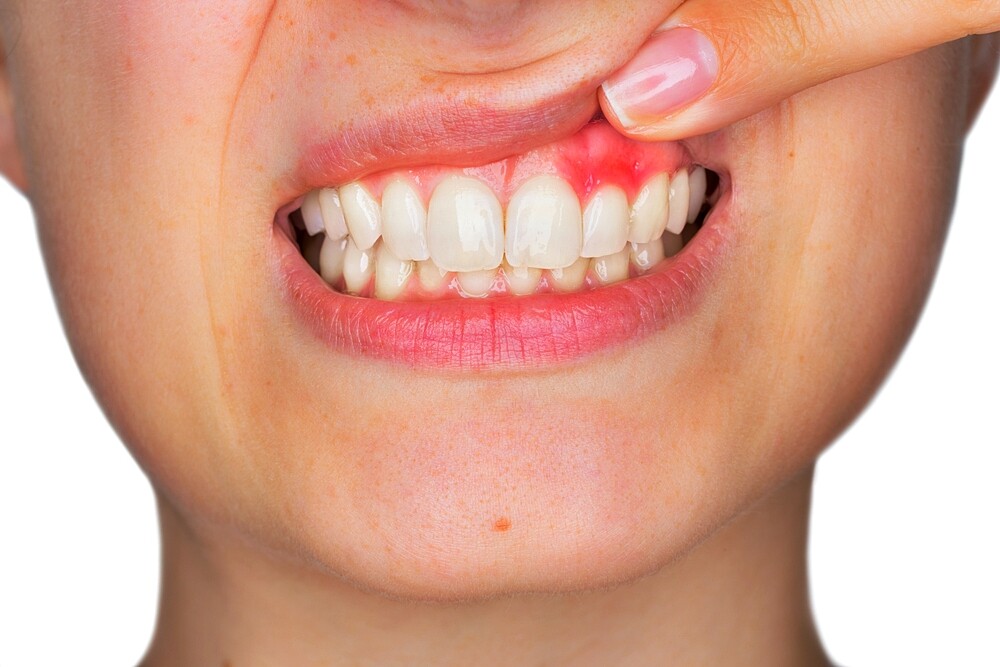Table of Content
It can be availed in various forms such as toothpaste, mouthwash or gel. Should you have any concerns about your health, or of that of your baby or child, please consult with your doctor. Parenting.Firstcry.ae accepts no liability for any errors, omissions or misrepresentations.

Many changes occur in your body during pregnancy, including pain, emotions, and other experiences you haven't had before. One of these conditions, which may also come as a surprise, is bleeding gums or gingivitis. Even so, this should not be a cause for concern because it's completely normal.
Hydrogen Peroxide
Even though you experience sugar cravings, minimize your sugar intake because excess sugar is harmful to your teeth. You may replace the sugar with vegetables and fruits as they're beneficial to your gum. Anti- Plaque Toothpaste-Mint from Dr. Brite is non-toxic and helps you fight fuzz on your teeth and get back the shine of your smile. The product is gluten-free, restores your enamel naturally, and has revitalizing abilities.
To receive the best benefits for reducing gum swelling and bleeding, it’s best to oil pull first thing in the morning. Instead of using baking soda, combine hydrogen peroxide with clove oil to make a paste and massage your gums. For pregnancy, you can choose to massage your gums with fresh aloe vera gel and rinse your mouth after half an hour. Another option is to swish aloe vera juice around in your mouth a couple of times a day.
How can I stop my gums from bleeding during pregnancy?
Turns out it can also remove plaque, promote gum health, and stop gum bleeding. If your gums are bleeding, rinse your mouth with hydrogen peroxide after brushing, but don’t swallow the solution. Gums become inflamed and bleed when there’s a buildup of plaque along the gum line. Plaque is a sticky film containing bacteria that covers your teeth and gums.
Use a soft-bristled toothbrush and brush gently so that you don’t irritate your sensitive gums. If morning sickness is keeping you from brushing your teeth, change to a bland-tasting toothpaste during pregnancy. Pay particular attention to any changes in your gums during pregnancy. If tenderness, bleeding, or gum swelling occurs at any time during your pregnancy, talk with your dentist or periodontist as soon as possible. See a dentist if gum bleeding doesn’t improve within 7 to 10 days. You may need a deep dental cleaning to remove plaque and tartar and promote gum healing.
Proper Oral Hygiene
Routine dental care can be done any time during pregnancy. All elective dental procedures, however, should be postponed until after the delivery. Before you have your dental appointment, check with your obstetrician to see if they have any special precautions/instructions for you. Swollen gums are a common occurrence when you're new to braces, but it could be also be a sign of gum disease. Your gums may also bleed from trauma or an injury to the gum tissue. Many new mothers are sleep deprived and providing round the clock care for their baby.

All these changes can leave pregnant mothers wondering what is and isn’t a normal pregnancy symptom. Displayed content is offered by businesses which have been compensated. There is a potential effect on how, what, and where products may appear. All effort is made into providing full transparency, not all available products or companies are highlighted.
While there’s no distinct timeline for when pregnancy gingivitis occurs, the second trimester tends to be more common. If you’re looking for symptoms of early pregnancy, and you’re experiencing sensitive gums, it might be a response to hormonal changes. It helps to neutralize the acids in the mouth that can eventually lead to cavities. It can be directly sprinkled on the toothbrush or mixed with toothpaste. It has soothing qualities and can ease the pain or decrease the inflammation.

There are a few things you can do to help stop your gums from bleeding during pregnancy. First, make sure you are brushing and flossing your teeth regularly. Second, try to avoid sugary foods and drinks, which can cause bacteria to grow in your mouth. Third, see your dentist for a check-up and ask for advice on how to keep your gums healthy.
Visit your dentist regularly and keep the dentist and the gynaecologist informed of any abnormalities that might be noted. Drinking green tea helps in reducing swollen gums and prevents the building of plaque and bacteria. From the information provided in this article, it's clear that the most effective way to deal with bleeding gums is maintaining excellent dental hygiene. One of the changes that may occur to your body is disliking your toothpaste's smell.

Pregnancy hormonal changes increase your gum's vulnerability to plaque, causing gum bleeding/gingivitis. This gum disease is mild and causes redness, irritation, and inflammation. Eating foods rich in vitamin C can strengthen your immune system and help fight off the gum infections that cause bleeding gums. Bleeding gums during pregnancy is a common condition that can be kept in check. Oral healthcare is very important to maintain during pregnancy.
If you’re not great at brushing and flossing, or you’re looking to take especially good care of your teeth, you may want to rinse your mouth with an alcohol-free mouthwash. You’ll probably notice them sometime during your second trimester, with the sensitivity and bleeding peaking during the third trimester. If you had gum disease before you became pregnant, you’ll probably notice that it’s now aggravated. You can reduce bacteria and inflammation in your mouth by rinsing it with herbs and edible oils.
Boil the leaves for 2-3 minutes and then strain the water. Pregnancy means more hormones, and for some people, this may mean having less saliva. Less saliva means that the carbs you eat hang around on the surfaces of your teeth for longer, potentially leading to a buildup of plaque. Plaque is the soft, sticky stuff that builds up on your teeth — and it’s chock-full of bacteria that cause tooth decay and gum disease. This remedy requires you to swish oil in your mouth for some time to treat your bleeding gums. Although the American Dental Association has not enough evidence on this, a few studies show that the method is effective.
You may also develop a small lump or nodule on your gums that bleeds when you brush. This relatively rare lump is called a pregnancy tumor or pyogenic granuloma – scary names for something that's harmless and usually painless. Pregnancy tumors can actually pop up anywhere on your body during pregnancy, but they show up most often in the mouth. Massage your gums with the paste and rinse your mouth with water. Although you can chalk up hormones to your problems with bleeding gums, there are other causes. Mixing olive oil in salads will strengthen the teeth and limit plaque formation.


No comments:
Post a Comment